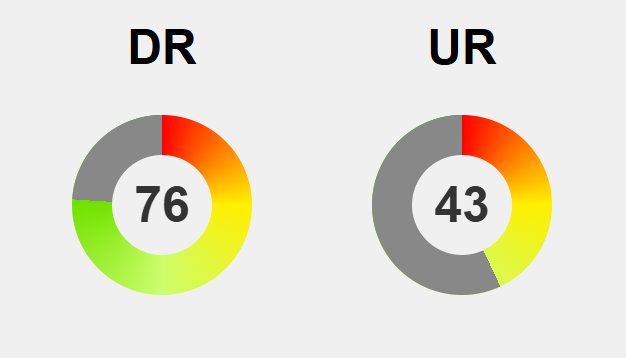The Magna Carta of 1215 is often heralded as a foundational document that reshaped notions of justice, law, and authority. Born out of turmoil and fiscal desperation, it sought to constrain royal power and protect individual rights, most notably the principle that no one is above the law. This historic charter didn’t revolutionize governance overnight but planted seeds for accountability, due process, and constitutional limits that resonate today. Its symbolic influence inspired legal reforms like habeas corpus and became a rallying cry against tyranny. Yet, questions remain: how does a document born in medieval chaos continue to underpin modern justice systems? Its enduring legacy lies in the ongoing reinterpretation of its core ideals—fair trials, lawful judgment, and lawful authority—that adapt to contemporary challenges like digital privacy and global governance. The Magna Carta’s principles persist, reminding us that justice is an evolving pursuit rooted in the fundamental belief that authority must serve the law and protect human dignity.
Unveiling the Significance of the Magna Carta and Its Foundations
The Magna Carta of 1215 stands as a pivotal milestone in the history of justice and authority, emerging from a period of profound political turmoil in England. Before its creation, royal power was largely unchecked, with kings wielding authority based on tradition and personal decree rather than law. The records reveal that King John’s reign was marred by military defeat, economic hardship, and disputes over feudal rights, which fueled widespread dissatisfaction among the nobility and commoners alike. These grievances culminated in a tense confrontation that challenged the very legitimacy of absolute monarchy. The Magna Carta was born out of necessity, serving as a pragmatic response to this crisis, rather than a deliberate blueprint for constitutional reform.
The immediate environment in which the Magna Carta was drafted was characterized by relentless tension. King John’s military failures in France, coupled with heavy taxation to fund ongoing campaigns, intensified the grievances of the barons and other social groups. They demanded that power be exercised within established legal limits and that traditional rights be respected. This demand for accountability was driven by a desire for stability and fairness amid chaos. The negotiations that ensued were marked by confrontation, but also by a recognition that compromise was essential. These negotiations resulted in a document that sought to restrain royal arbitrariness and reaffirm the rule of law, setting a precedent that would influence governance for centuries to come.
The core of the Magna Carta was a pragmatic effort to address specific grievances related to justice and legality. It was not intended as a comprehensive overhaul of the political system but as a set of targeted protections. Among its key clauses was the guarantee that no free man could be imprisoned without lawful judgment—a principle that laid the groundwork for the concept of due process. Many provisions reaffirmed longstanding feudal rights and local customs, emphasizing that even the king’s authority was subject to legal constraints. These clauses signaled a shift toward accountability and established the idea that authority must operate within the bounds of law, rather than personal whim or unchecked power.
The significance of the Magna Carta extended beyond its immediate political context. It symbolized the first formal recognition that even the monarch was not above the law. While many of its clauses lacked immediate enforceability and were often ignored, the document’s symbolic weight was immense. It conveyed a vital message: that authority should be exercised within legal boundaries, and that individuals had rights that rulers must respect. Over time, the principles embedded in the Magna Carta became rallying points for resistance against tyranny and inspired future legal reforms. Its influence gradually expanded, shaping ideas of justice, individual rights, and the rule of law that remain fundamental to modern governance.
Foundations of the Magna Carta: Origins and Core Principles
The Magna Carta of 1215 emerged from a period marked by escalating tensions between King John and his barons, driven by military failures, economic pressures, and disputes over feudal rights. Over several years, grievances intensified as the crown lost significant territories in France and relied heavily on heavy taxation to sustain ongoing campaigns. These levies, often imposed without proper consent, fueled widespread dissatisfaction among the nobility and commoners alike. The records reveal a growing sense that royal authority was being exercised arbitrarily and outside established legal norms, prompting demands for accountability and legal constraints. This climate of unrest created an environment ripe for confrontation, setting the stage for the monumental negotiations that would lead to the creation of the Magna Carta.
Central to these tensions was King John’s reliance on unchecked personal authority, which alienated the aristocracy and other social groups. The barons, feeling their traditional rights and privileges were being trampled, sought to impose limits on royal power. Their protests were not merely about specific grievances but reflected a broader desire to uphold the rule of law and prevent future abuses. The negotiations that ensued were characterized by a delicate balance of confrontation and pragmatism. Both sides recognized that stability could only be restored through compromise, leading to a document that attempted to curb royal arbitrariness while acknowledging the realities of power.
The core features of the Magna Carta reflect a pragmatic attempt to address immediate grievances rather than a revolutionary blueprint for governance. It was primarily a set of targeted protections designed to limit specific abuses of authority. Among its most significant clauses is the guarantee that no free man could be imprisoned without lawful judgment—an early articulation of what would later be known as due process. This clause marked a departure from the idea that the king could act arbitrarily, establishing that justice must follow lawful procedures. Many other provisions reaffirmed customary rights and local legal standards, emphasizing that even the monarch’s authority was subject to the law, not personal whim.
The document also tackled issues related to feudal rights, land disputes, and taxation, reflecting the concerns of the barons and other social classes. It sought to reaffirm traditional privileges that had been eroded by royal overreach. The clauses demanding that the king respect local customs and refrain from extorting excessive dues echoed a broader principle: authority must operate within established legal boundaries. This recognition of legal limits was a significant step toward the development of constitutional principles that would evolve over centuries. The Magna Carta thus served as a formal acknowledgment that even the highest ruler must operate within the framework of law.
The environment surrounding the Magna Carta’s drafting was tense and confrontational. King John’s military setbacks, especially in France, compounded by economic strains, increased the pressure to raise taxes. These financial burdens fueled resentment among the barons and other societal groups, who saw their rights and livelihoods threatened. Repeated protests, threats of rebellion, and demands for reform pushed both sides toward negotiation. The resulting agreements, embodied in the Magna Carta, were pragmatic compromises designed to restore order and stability. The document acknowledged the reality that royal authority, while formidable, could not operate without regard to established legal norms and the rights of subjects.
Many clauses of the Magna Carta addressed specific grievances, but their underlying message was broader: authority must be constrained by law. For example, Clause 39 states that “no free man shall be imprisoned… except by the lawful judgment of his peers or by the law of the land.” This principle laid an important foundation for the concept of lawful judgment and fairness. Similarly, Clause 40 emphasizes that “to no one will we sell, to no one will we deny or delay, right or justice,” underscoring the importance of lawful procedures in administering justice. Although many provisions were rooted in feudal customs, collectively they signaled a shift toward legal accountability and the recognition that even the king’s power was limited by law.
The immediate impact of the Magna Carta was symbolic as much as practical. It temporarily curtailed King John’s ability to act arbitrarily, establishing that royal authority was subject to legal constraints. Despite many clauses lacking enforceability and being often ignored or revoked by subsequent rulers, the document’s symbolic significance was profound. It conveyed a vital message: that authority, even at the highest level, must be exercised according to law. Over time, the principles it enshrined became rallying points for resistance against tyranny and inspired future legal reforms that extended beyond the initial context. Its influence grew gradually, laying the groundwork for ideas of justice, individual rights, and the rule of law that underpin modern governance.
The broader legacy of the Magna Carta extends far beyond its immediate historical moment. Its core principles—such as the rule of law, protections against illegal detention, and the requirement for lawful judgment—became foundational to the development of constitutional law and democratic governance. These ideas served as catalysts for subsequent reforms, including the creation of habeas corpus and the rights to a fair trial, which are now central to legal systems worldwide. Over centuries, reinterpretations and legal advancements embedded these principles into the fabric of rights-based systems, transforming the Magna Carta from a pragmatic political document into a universal symbol of justice and individual liberty. Its enduring influence illustrates that foundational principles, once articulated, can evolve and expand to meet the needs of changing societies.
The significance of the Magna Carta lies not only in its historical achievements but also in its ongoing relevance. Its assertion that even the monarch is bound by law helped to establish the premise that authority must be exercised within legal limits, fostering the development of constitutional monarchies and parliamentary democracies. This shift from unchecked power to legal accountability has transformed governance, emphasizing transparency, rule of law, and individual rights. Today, the principles enshrined in the Magna Carta continue to underpin modern legal and political systems. They serve as a moral compass guiding efforts to uphold justice, limit abuses of power, and protect the dignity of every individual in a rapidly changing world.
Legacy in Law: How the Magna Carta Shapes Modern Justice
The influence of the Magna Carta endures through its foundational principles, which continue to underpin modern legal and political systems worldwide. Its emphasis on the rule of law, due process, and checks on authority has inspired an array of legal reforms and constitutional frameworks that shape contemporary justice. Courts and legislatures frequently invoke its clauses when establishing individual rights and protections, demonstrating their lasting relevance. For instance, the principles of fair trial and protections against arbitrary detention derive directly from the Magna Carta’s core ideas, fostering a legal culture rooted in accountability and transparency. This symbolic power helps sustain societal expectations that justice must be grounded in law, not personal whim or unchecked power.
Beyond its immediate historical context, the Magna Carta’s influence extends through centuries of legal development. Its core concepts—such as the idea that rulers are subject to law and that individual rights must be protected—became the bedrock of constitutional evolution. These ideas inspired the emergence of parliamentary systems, legal protections, and rights-based democracies that define modern governance. The development of doctrines like habeas corpus, which ensures individuals cannot be detained unlawfully, directly draws from the Magna Carta’s emphasis on lawful judgment and legal safeguards. Over time, legal thinkers and reformers reinterpreted and expanded these principles, embedding them into the fabric of rights-based systems across nations and regions.
Historical cases and legal precedents vividly illustrate the Magna Carta’s lasting influence. In Britain, clauses safeguarding against illegal imprisonment directly inspired the creation of habeas corpus, a safeguard that prevents unlawful detention. Similar protections have become fundamental in legal systems committed to limiting executive power and upholding individual liberty. The English Bill of Rights of 1689 explicitly references Magna Carta, reaffirming rights to a fair trial and protection from excessive punishment. Internationally, many constitutional courts and human rights organizations draw upon the Magna Carta’s ideas when affirming the importance of legal accountability and individual protections. These references reinforce the notion that its core principles continue to shape judicial reasoning and legal standards today.
The Magna Carta’s assertion that even the highest authority—whether monarchs or modern leaders—must operate within legal limits marked a revolutionary shift. It established the precedent that no one, regardless of status, is above the law. This principle laid the groundwork for the development of constitutional monarchies and democratic republics, where power depends on adherence to legal constraints and accountability. Over centuries, this shift transformed governance from unchecked authority into systems rooted in transparency, rule of law, and respect for individual rights. Its influence in fostering responsible governance remains a cornerstone of legitimate political institutions, continuously reminding us that authority must be exercised within the boundaries of law and fairness.
The evolution of legal doctrines rooted in the Magna Carta underscores its profound impact on justice itself. Its early focus on protections against illegal detention and the right to a fair trial laid the groundwork for contemporary standards that safeguard personal liberty and due process. These principles have been integrated into constitutions, legal codes, and international treaties, evolving into fundamental rights that underpin modern legal systems. Their endurance demonstrates how foundational ideas, once articulated, can adapt and expand over time, addressing new societal challenges while preserving core values. The Magna Carta’s legacy persists because it represents a shared understanding that justice is an ongoing pursuit—one that requires continuous reinterpretation and reinforcement to meet the needs of an ever-changing world.
This ongoing influence highlights the importance of understanding the historical roots of our legal systems. For those interested in exploring how these foundational principles continue to shape contemporary law, the article on Magna Carta and Modern Justice offers valuable insights into its enduring significance.
From Past to Present: Practical Implications and Continued Relevance
The principles embedded in the Magna Carta continue to underpin modern legal and political frameworks, shaping how justice and authority are understood and exercised today. Courts and legislative bodies frequently reference its core clauses when establishing rights and protections, demonstrating that the influence of 1215 remains deeply embedded in contemporary systems. The enduring concepts of fair trial, protection against unlawful detention, and accountability for those in power foster a legal culture rooted in transparency and responsibility. This symbolic power reinforces societal expectations that justice must be grounded in law rather than personal whim or unchecked authority, ensuring that the rule of law remains central to governance.
The Magna Carta’s impact extends far beyond its original medieval context, serving as a catalyst for a series of pivotal legal reforms and constitutional developments that continue to shape governance structures worldwide. Its core ideas—such as the notion that rulers are subject to law and that individual rights must be safeguarded—laid the foundation for the emergence of parliamentary systems, legal protections, and rights-based democracies. The development of doctrines like habeas corpus, which ensures individuals cannot be detained unlawfully, directly draws from the Magna Carta’s emphasis on lawful judgment and legal safeguards. Over centuries, legal thinkers have reinterpreted and expanded these principles, embedding them into the fabric of rights-based systems across nations and regions.
Legal precedents and landmark judicial decisions vividly illustrate the Magna Carta’s persistent influence. In Britain, clauses safeguarding against illegal imprisonment directly inspired the creation of habeas corpus, a fundamental safeguard that prevents arbitrary detention. This principle has become a cornerstone of legal systems committed to limiting executive power and upholding personal liberty. Similarly, the English Bill of Rights of 1689 explicitly references Magna Carta, reaffirming rights to a fair trial and protection from excessive punishment. Internationally, many constitutional courts and human rights organizations cite the Magna Carta’s ideas when emphasizing the importance of legal accountability and individual rights, reaffirming its role as a universal symbol of justice.
The assertion that even the highest authority—whether monarchs or modern leaders—must operate within legal limits marked a revolutionary shift. It established the precedent that no one, regardless of status, is above the law. This concept laid the groundwork for the development of constitutional monarchies and parliamentary democracies, where power depends on adherence to legal constraints and accountability. Over time, this shift transformed governance from unchecked authority into systems built on transparency and the rule of law. Its influence in fostering responsible, accountable governance remains a cornerstone of legitimate political institutions, continuously reminding us that authority must be exercised within the boundaries of fairness and legality.
The evolution of legal doctrines rooted in the Magna Carta underscores its profound impact on justice itself. Its early focus on protections against illegal detention and the right to a fair trial paved the way for contemporary standards that safeguard personal liberty and due process. These principles have been integrated into constitutions, legal codes, and international treaties, evolving into fundamental rights that underpin modern legal systems. Their endurance demonstrates that foundational ideas, once articulated, can adapt and expand over time, addressing new societal challenges without losing their core significance. The Magna Carta’s legacy persists because it embodies a shared commitment to justice as an ongoing pursuit—one that requires continuous reinterpretation and reinforcement to meet the needs of an ever-changing world.
Today, the principles derived from the Magna Carta continue to serve as moral and legal benchmarks in efforts to uphold justice and accountability. They inform debates on digital privacy, government transparency, and international law, providing a moral compass for navigating complex modern issues. Legal systems are increasingly integrating these principles into new contexts, ensuring that the rule of law remains a central feature of governance amid rapid technological change. This ongoing reinterpretation affirms that the ideas first articulated in 1215 are not static relics but living concepts that evolve with society, guiding efforts to preserve dignity, fairness, and responsibility in an interconnected world. The Magna Carta’s enduring relevance lies in its capacity to inspire continuous adaptation, maintaining its core ideals at the forefront of legal and political discourse.
Looking Ahead: The Future Impact of the Magna Carta on Justice and Governance
The legacy of the Magna Carta endures as a cornerstone in the evolving landscape of justice, accountability, and the limits of authority. Over the centuries, its core principles—the rule of law, protections against arbitrary detention, and the requirement for lawful judgment—have transcended their medieval origins to shape modern constitutional democracies worldwide. Far from being merely a historical artifact, these ideals continue to inform contemporary legal systems, inspiring reforms and serving as moral benchmarks that safeguard individual rights against encroaching power. They remind us that justice is an ongoing pursuit, demanding vigilance, adaptation, and a steadfast commitment to fairness in every era.
Looking toward the future, the influence of the Magna Carta appears poised to grow even more significant as societies grapple with new challenges that test the boundaries of law and authority. In an age of rapid technological change, issues like digital privacy, cyber security, and data governance demand reinterpretations of traditional notions of rights and oversight. The foundational ideas of accountability and lawful authority embedded in 1215 provide a moral compass to navigate these complexities. They reinforce the notion that even the most powerful institutions must operate within legal and ethical boundaries, ensuring that progress does not come at the expense of justice or individual dignity.
Legal reforms inspired by the Magna Carta will likely expand and deepen, further embedding its principles into the fabric of global governance. International human rights frameworks, such as the Universal Declaration of Human Rights and regional treaties, draw heavily on its concepts of justice and individual sovereignty. Courts and legislatures across the world continue to reference its clauses in landmark decisions, reaffirming that the ideals of fairness, transparency, and responsibility are universal and timeless. As societies evolve, the Magna Carta’s influence will remain vital—challenging us to maintain a delicate balance between authority and liberty while promoting systems that respect human dignity at every level.
Moreover, the ongoing development of legal doctrines rooted in its principles underscores their enduring relevance. The protections against unlawful detention, the right to a fair trial, and the accountability of rulers—once revolutionary ideas—have become foundational to contemporary rights-based systems. These principles are now woven into constitutions, international treaties, and judicial practices, illustrating how a document born out of medieval crises laid the groundwork for the modern conception of justice. As new societal issues emerge, these core values will serve as guiding lights, ensuring that progress aligns with fundamental human rights and the rule of law.
In sum, the Magna Carta’s influence is not confined to history; it continues to shape the pursuit of justice in a complex, interconnected world. Its principles serve as a moral and legal compass that guides reforms, inspires resistance against tyranny, and fosters a culture of responsibility and respect for human dignity. As global challenges expand—whether through technological innovation, geopolitical shifts, or social transformation—the enduring ideals of 1215 will remain relevant. They compel us to uphold accountability, defend individual rights, and ensure that authority remains subject to the law. The document’s legacy is a testament to the power of principled legal thought and its capacity to inspire positive change, guiding humanity toward a more just, equitable future rooted in the timeless values first articulated over eight centuries ago.







